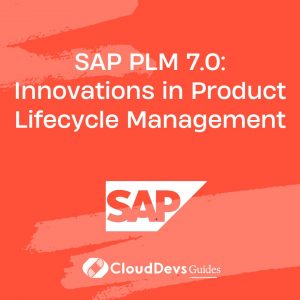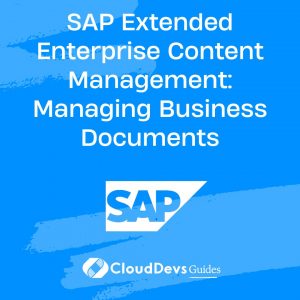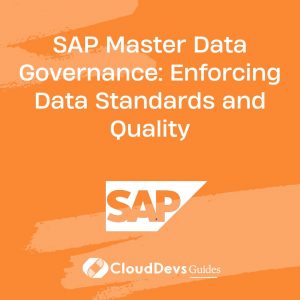SAP PLM 7.0: Innovations in Product Lifecycle Management
Product Lifecycle Management (PLM) is essential for managing the entire lifecycle of a product from inception through design, manufacturing, and service. SAP PLM 7.0 introduces several innovations designed to streamline processes, improve collaboration, and enhance product management. This article explores the key features and advancements in SAP PLM 7.0 that support efficient product lifecycle management.
Key Innovations in SAP PLM 7.0
1. Enhanced User Interface
SAP PLM 7.0 features a modernized user interface that improves usability and accessibility. The new interface provides a more intuitive and user-friendly experience, making it easier for teams to navigate and utilize the system efficiently.
Example: Improved Navigation
The redesigned navigation menus and dashboards offer quick access to critical information and tools, enhancing productivity and reducing the time spent searching for relevant data.
2. Integrated Product Development
SAP PLM 7.0 integrates seamlessly with other SAP modules such as SAP ERP and SAP SCM, facilitating better coordination across departments. This integration helps in managing product development processes more effectively.
Example: Cross-Functional Collaboration
The integration allows for real-time updates and synchronization of product data between design, engineering, and manufacturing teams, ensuring alignment and reducing errors.
3. Advanced Document Management
The document management capabilities in SAP PLM 7.0 have been upgraded to support advanced document handling, version control, and collaboration. This enhancement ensures that all stakeholders have access to the latest documentation.
Example: Document Collaboration
Users can now collaborate on documents in real-time, track changes, and maintain a history of revisions, improving document accuracy and consistency.
4. Improved Change Management
SAP PLM 7.0 introduces advanced change management features that simplify the process of managing changes to product designs and specifications. This improvement ensures better control and tracking of modifications.
Example: Change Request Processing
The system allows for streamlined processing of change requests, with automated workflows and notifications, ensuring that all changes are reviewed and approved efficiently.
5. Enhanced Analytics and Reporting
The new analytics and reporting features in SAP PLM 7.0 provide deeper insights into product performance and lifecycle metrics. These capabilities help organizations make data-driven decisions and optimize their product management strategies.
Example: Real-Time Dashboards
Users can create customized dashboards and reports to monitor key performance indicators (KPIs) and track product lifecycle stages, enabling proactive management and decision-making.
6. Integration with SAP Fiori
SAP PLM 7.0 is compatible with SAP Fiori, offering a modern, responsive design for accessing PLM functionalities on various devices. This integration enhances user experience and accessibility.
Example: Mobile Access
Users can now access SAP PLM functionalities on mobile devices, allowing for greater flexibility and the ability to manage product lifecycle tasks while on the go.
Conclusion
SAP PLM 7.0 represents a significant advancement in product lifecycle management, offering enhanced user interfaces, improved integration, advanced document management, better change management, and robust analytics capabilities. These innovations enable organizations to manage their product lifecycles more efficiently and effectively. By leveraging these new features, companies can achieve better collaboration, improved product quality, and more informed decision-making.
Further Reading:
Table of Contents









